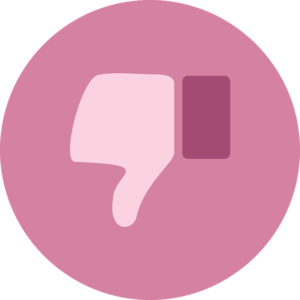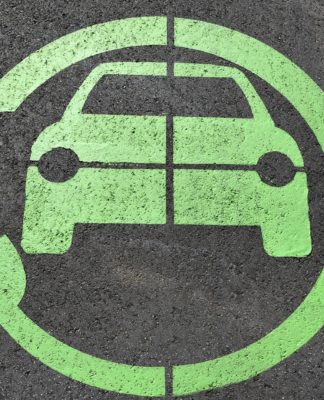
Long seen as a guiding light, a way to connect the entire planet in new and better ways, helping to usher in a bright and prosperous future, “big tech” i.e. Facebook, Twitter and other social media platforms, and the search engines like Google that propagate them, have now gained the ire of both the government and private sectors reeling from the damage done through use and abuse by devious parties.
Like Russian involvement in the 2016 US presidential elections. It’s been reported that Russian meddlers used Facebook to create some 80,000 (misleading) Facebook posts, reaching 126 million people in the United States.
Or the sites run by pro-Nazi and other hate groups, or any group in general looking to sow misinformation for immediate political and/or monetary gain.
Government figures, like Britain Prime Minister Theresa May, for one, are holding big tech accountable for not only offering a platform for this sort of propaganda to spread, but for doing little-to-nothing to stop it. Executives from Google, Twitter, and Facebook were brought before Congress here in the United States to address Russian interference as well.
The executives mostly removed themselves, or perhaps we should say removed their companies and companies’ missions, from complicity, taking a much more innocent stand on the unregulated use of their product.
A general, “How could we have known?”

The current social state of social media? Boo, hiss!
Last week, however, Facebook’s product manager for civic engagement, Samidh Chakrabarti published an article that more or less took responsibility. At least some responsibility: “As unprecedented numbers of people channel their political energy through this medium,” he wrote, “it’s being used in unforeseen ways with societal repercussions that were never anticipated…
“We’re working diligently to neutralize these risks now.”
But while they certainly play a big (tech) role, it’s also important to ask the question of how much role they should play in regulating what goes on in their inventions. If the internet’s impact has been compared to the printing press, one would/could never have deemed Johannes Gutenberg responsible for all of the heinous (and false) sh#t that has been printed on paper over the last 600 years.
Though, it could (and probably should) be argued that the bottom line comes in to play – that Gutenberg’s invention wasn’t built, and couldn’t have been built, for the sort of corporate domination and billion-dollar empire these companies are seeing today, even if it was built with a similar goal (global connectedness) in mind.
Thus, as global investor and philanthropist George Soros, speaking at a dinner at the World Economic Forum (WEF) in Davos, Switzerland last week, said, “The fact that they are near-monopoly distributors makes them public utilities, and should subject them to more stringent regulations aimed at preserving competition, innovation, and fair and open universal access.”
Going so far as to call them (calling out Google and Facebook specifically) a “menace” that would “compromise themselves” in order to expand into markets, like China, where they are currently not allowed.
Some, like Salesforce founder Marc Benioff, were even more direct, comparing big tech to big tobacco: An industry that sells an “addictive” product to the masses, which will soon create a bubble similar to that of credit before the Great Recession in 2008.
“The government needs to come in and point True North,” he said of big tech from a stage in Davos.
And Benioff’s analogy works on another level as well: As Big Tobacco’s strategy was geared specifically toward youth in order to get them hooked early, and then riding their addiction, positive or negative, toward ever-expanding profits:
We know that Facebook is especially pushing its product on younger and younger users. We discussed recently the advent of Messenger Kids (Go play… inside? Facebook debuts Messenger Kids ) and the obvious implications of getting children as young as 6 involved with social media, even (especially) in the face of studies that show the damage iPhone use has on childhood development, and the known addictive qualities of social media platforms like Facebook.
The “fake news” and falsehoods, the misinformation and general confusion that pervades Facebook’s News Feed, and even your average Google search, will then take root in much earlier, and much more crucial, stages of development.
This is what happens next:
So, while Facebook et al, work hard to curb this sort of misuse, whether civic-mindedly or simply to protect themselves from fines, public fervor/disinterest, or, worst of all, government regulations (gasp!), the debate continues:
In the United States, where most of the companies we’ve discussed here are based, the Trump administration (which was elected on a platform of deregulation and tax cuts) probably won’t be enforcing much, if any, oversight or regulation.
In Europe, however, the opposite is already true: The European Commission fined Google $2.4 billion (£2.14 billion) in June of 2017 for forcing users toward its own services in search engine results.
New European Union-wide data protection rules, enacted in 2016 and designed to better protect user date from notoriously personal-data hungry big tech, had already forced a push back from Facebook, and, according to company COO Sheryl Sandburg, prompted the need to “…protect free expression, keep people safe, and respect privacy.”
Right.
But regulators, i.e. politicians, don’t want to push too hard, as these services are still operating in general favor with the public – irking the voter base, which still generally support, and use, Google, Facebook, Amazon, Airbnb, Uber (etc. etc. etc.) on a daily basis, is dangerous territory for them as well.
At its core, though, the discussion is really nothing new. Governments (are forced to) break up monopolies all the time. In a similar, albeit seemingly ancient case in this context, the United States government did so to AT&T in 1956. The telecommunications behemoth was forced to allow rival companies access to patents, which, basically led to the Silicon Valley tech boom that brought us to where we are today.
With Facebook and Google taking in a combined 88% of new advertising dollars in 2017, the time for some sort of action certainly seems nigh.
But no one really seems to know what the right answer is, and maybe there isn’t one. There will certainly be a continued push (in Europe, at least) for regulation, and continued pressure for more oversight in order to create some sort of reassurance that this free-for-all of falsehoods, this fake news orgy, and the noted lack of transparency from big tech, doesn’t become the normality of life online.
To what end, however, we won’t know until we’ve arrived.
Read this next: Interest-free loans for tech startups in Minnesota




















